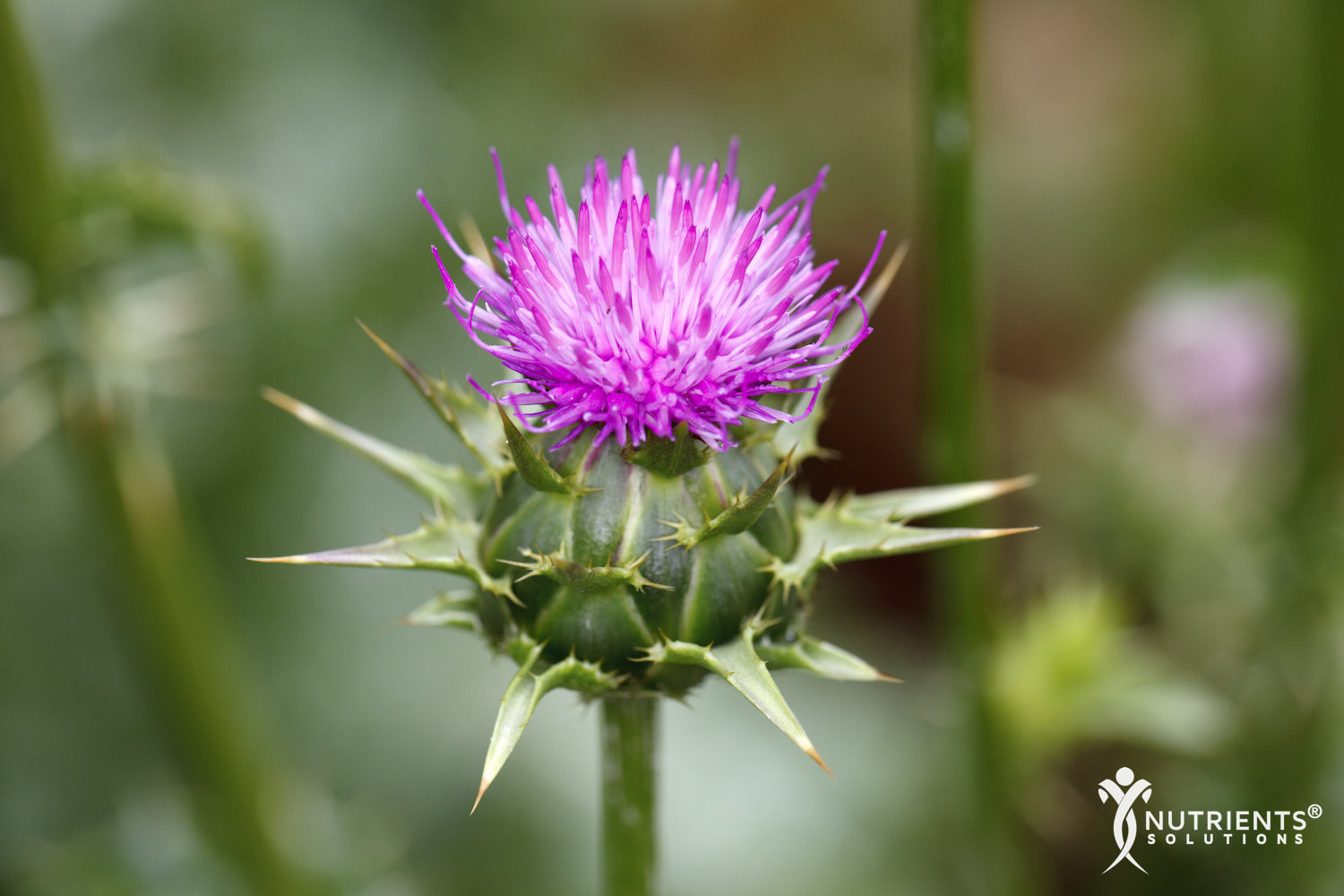Wellness Demystified: We Can Help You Discover Optimum Health
The Multiple Health Benefits of Milk Thistle

The prickly plant known as milk thistle has long been featured in folk remedies. Native to parts of southern Europe, Northern Africa, and Asia Minor, milk thistle is also popularly grown today in areas of Australia and both North and South America. Milk thistle gets its name from the white veins that adorn its large leaves. Sometimes the plant is referred to as silymarin, but silymarin actually refers to the active ingredient in the plant that is so effective for treating many conditions. People take extracts and supplements of milk thistle in various forms including liquid, pill, tablet, or powder.
About the Milk Thistle Plant
Milk thistle is a relatively common plant that is sometimes known as Mary thistle and Scotch thistle. It’s easy to identify by its purplish flowers and pale green leaves with spiny edges. The plant can grow up to 79 inches tall and is often used as a decorative plant in gardens. On the other hand, this distinctive plant has also been used medicinally for centuries. Milk thistle is primarily used to treat liver ailments, but it may have further uses that are sure to enhance its fame in the great pantheon of medicinal plants.
Health Benefits of Milk Thistle
The silymarin contained in milk thistle is primarily the compound associated with this plant’s medicinal qualities. Silymarin is a flavonoid that is rich in antioxidants. Comprised of polyphenolic molecules, silymarin has long been understood to have properties that could benefit hepatic function. As more is learned about silymarin and milk thistle’s other components, more remedies may be discovered.
Support for Liver Function
Milk thistle is most commonly used to treat liver conditions. According to a 2016 study published in Pharmaceutical Biology, milk thistle helped improve liver damage in mice–mice suffering from diet-related liver damage. Naturally, more research is needed to explore how these benefits manifest in human livers, but folk practitioners have long turned to milk thistle to help sufferers with liver problems. As mentioned above, it’s the silymarin contained in the plant that enhances liver function.
Helps Reduce Cholesterol
High cholesterol is a serious problem in many Western nations. High cholesterol is linked with an increased risk for heart disease and stroke. Researchers believe that milk thistle can help keep cholesterol levels in the normal range–or at least reduce them if they tend to be high. Although more scientific research is needed, milk thistle also appears to have the ability to improve triglyceride levels as well, which can help decrease one’s risk for cardiovascular disease.
Helps Combat Cancer
Scientists are looking in many parts of the plant kingdom for a cancer cure, and it appears that there is some potential in milk thistle for reducing cancer growth and spread. Researchers at the University of Minnesota in 2007 discovered that silymarin could inhibit cancer growth in the cervix, breast, skin, and prostate. The antioxidants contained in milk thistle also greatly support the immune system, which helps the body fight serious diseases like cancer. More studies are underway to examine the anti-carcinogenic properties of silymarin.
Helps Control Diabetes
The National Institute of Health suggests that silymarin, along with traditional treatments, can support optimum glycemic control. Researchers believe that the high levels of antioxidants in milk thistle can lower blood sugar levels in diabetic people who are insulin resistant. Insulin resistance is a severe problem for people who have type II diabetes.
Gallstone Prevention
It’s long been suspected that milk thistle can support gallbladder and kidney function, which are closely tied to liver function. Milk thistle seems to have the ability to increase bile flow which not only provides healthful detox for the liver but for the gallbladder as well. Improved detox means a reduced risk for gallstone formation. Similarly, the silymarin contained in milk thistle may also help prevent kidney stones.
Helps Boost Immune System Function
Rich in antioxidants, milk thistle is known to enhance immune system function. While this boost may help the body fight severe diseases like cancer, as mentioned above, it can also help ward off infection on a regular basis. The Medical Science Monitor reported earlier in the century that milk thistle could strengthen the immune system’s response. Taking a supplement before the onset of cold and flu season, therefore, makes sense for many people who want to avoid these common ailments.
Naturally Boosts Glutathione Levels
Milk thistle naturally increases levels of glutathione–an antioxidant your body produces in the liver. Glutathione levels decline with age but are critically important for staving off chronic diseases associated with oxidative stress, such as heart disease, diabetes, and cancer. Silymarin is an antioxidant in milk thistle that is shown to stimulate the body’s production of glutathione and effectively prevent glutathione depletion, according to a test tube and animal studies.
In a study on diabetic rats with kidney damage, or diabetic nephropathy, silymarin from milk thistle stimulated the activity and recovery of the glutathione system, which is key in protecting the body against free radical damage. This suggests milk thistle may play a role in treating diabetic nephropathy and other conditions that result from oxidative damage.
Increases Superoxide Dismutase Production
Superoxide dismutase (SOD) is one of your body’s most powerful defense systems against free radicals. It’s an antioxidant enzyme the body naturally synthesizes, and it’s shown to lower inflammation and protect against oxidative damage–cellular and DNA damage that has been linked to cancer, Alzheimer’s and other diseases. Milk thistle has been shown in animal models to increase levels of superoxide dismutase in the body and have a protective effect on the liver when toxins are introduced. By strengthening the body’s defense against toxins that produce free radicals in the body, such as alcohol and painkillers, milk thistle supplementation helps protect against serious diseases.
Before embarking on a course of milk thistle extract or supplements, it’s important to discuss your plans with your healthcare provider. If you’re interested in milk thistle’s evolving use a medicinal plant, be sure to update your research on this plant from time to time as more studies on its efficacy are sure to come.
References:
- https://nccih.nih.gov/health/milkthistle/ataglance.htm
- https://www.medicalnewstoday.com/articles/320362.php
- https://www.healthline.com/nutrition/milk-thistle-benefits
- https://www.mayoclinic.org/drugs-supplements-milk-thistle/art-20362885
- https://www.ncbi.nlm.nih.gov/pubmed/27387273
- https://www.ncbi.nlm.nih.gov/pubmed/12444368
- https://www.ncbi.nlm.nih.gov/pmc/articles/PMC3959115/
- https://www.healthline.com/nutrition/how-to-increase-glutathione#section6
- https://www.ncbi.nlm.nih.gov/pubmed/20579862/


© 2019 Nutrients Solutions, LLC. All rights reserved. Disclaimer: The information provided is for educational purposes only and does not constitute medical advice. Always seek the advice of your physician or qualified healthcare provider with any questions or concerns about your health. Check with your doctor before beginning any exercise program. Never disregard or delay seeking medical advice because of something you have heard or read in this article or the internet.












